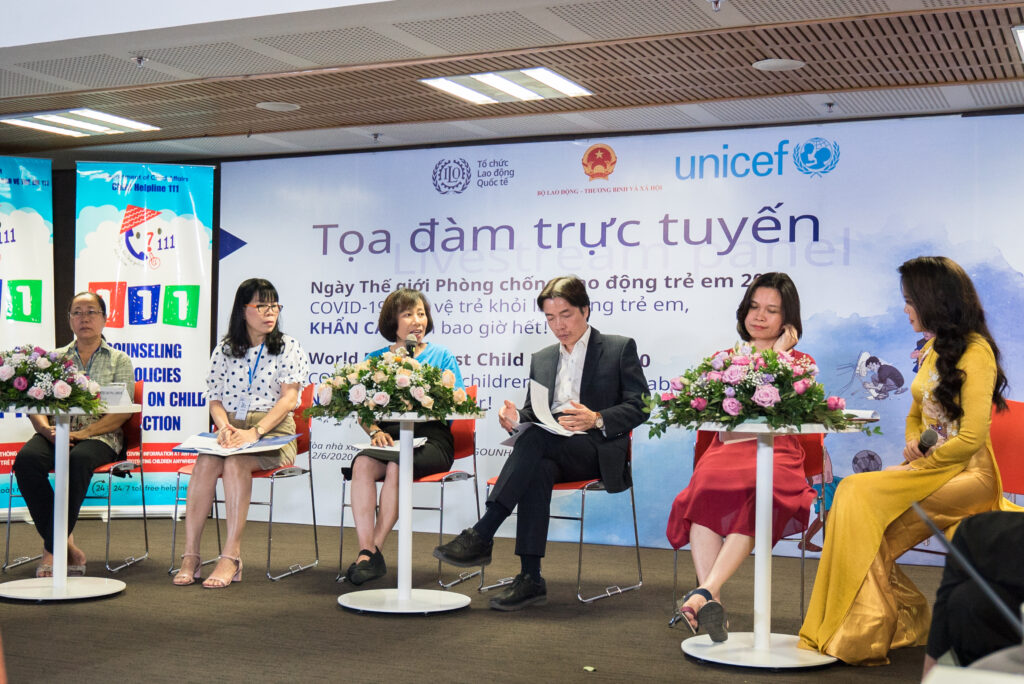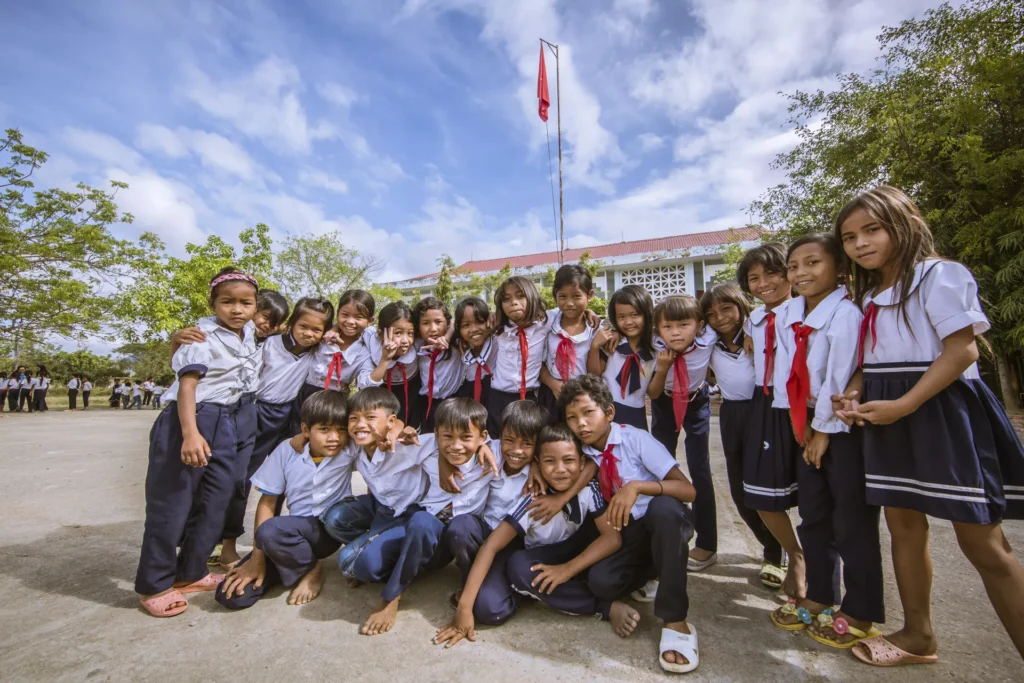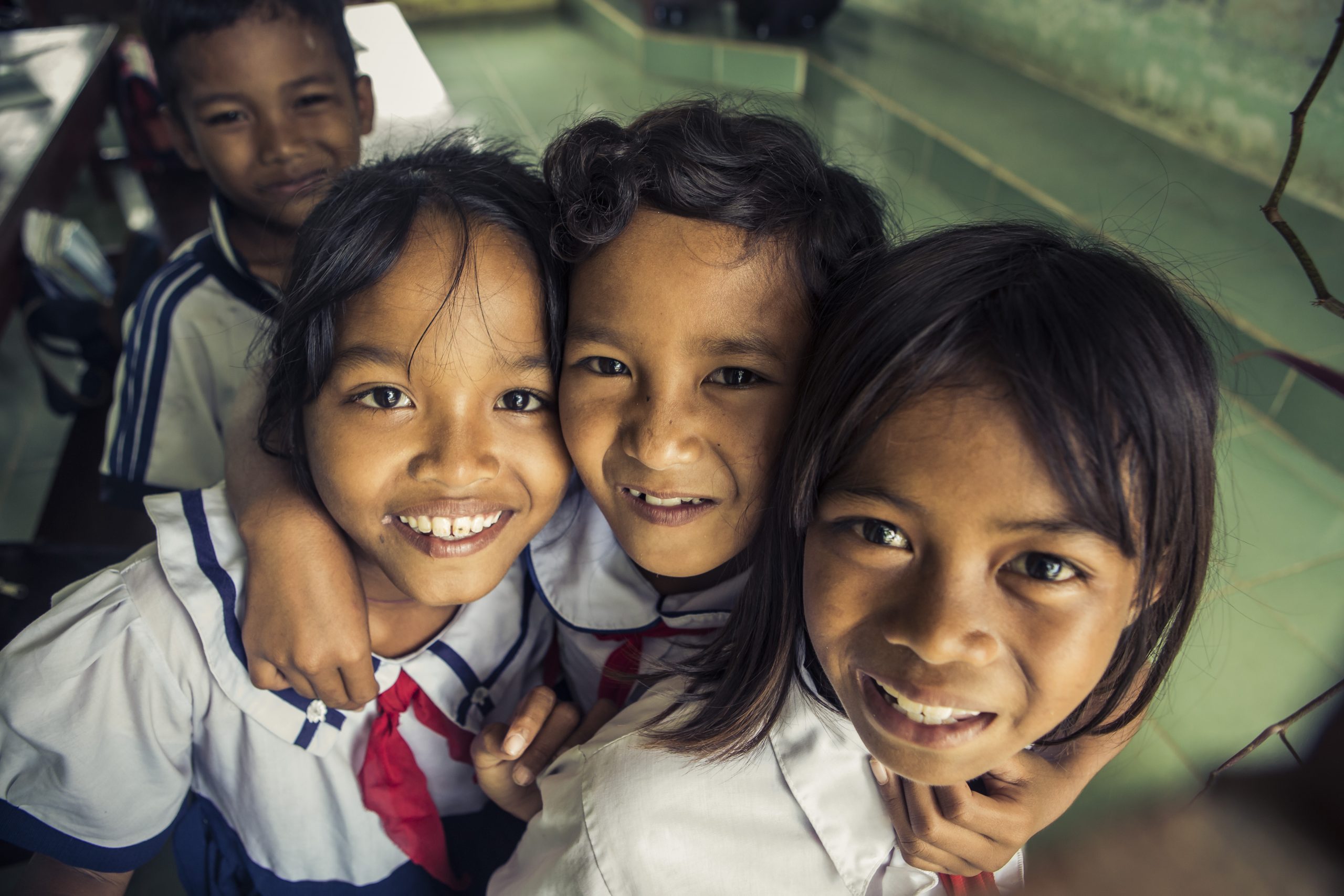High-level cooperation with national government
Under the WNCB programme, the already existing cooperation between UNICEF and Save the Children, has grown further and has solidified. On many topics, the in-community practices, materials, and experiences of Save the Children have provided evidence and practical examples to UNICEF’s cooperation and engagement with government. In its WNCB activities, UNICEF works primarily with the Ministry of Education and Training, focusing on the link between education and the prevention of child labour.
“The education system is an important ally of the child protection system,” says Yen Pham Thi Hai, Child Protection Officer at UNICEF at UNICEF. “When children are not in school, the risk of child labour becomes high. However, this link has not been clear enough. Not for schools, nor for government organisations. Therefore, our programme activities include high level advocacy and sensitization on the issues of school dropouts and the eradication of the risk of child labour. In addition, we focus on improving the legal framework in terms of child protection and child labour prevention, trying to promote formal decision making that will support conditions to provide psychosocial and other services to children. We also support the Ministry on developing child protection protocols that will guide teachers, school management and children in dealing with exploitation and abuse. And we support the further development of life skills training at the vocational training centres.”
Le Hong Loan, chief of child protection at UNICEF, provides a closer look at the WNCB activities.
Raising awareness
“Raising awareness on the link between education and the risk of child labour has indeed proved to be very important. At the beginning of our WNCB programme, schools often thought that they did not have a role in the prevention of child labour. ‘There is no child labour here, so why come to us,’ they would tend to say. Likewise, the Ministry of Education and Training was not too focused on this link either, thinking that the Ministry of Labour, Invalid and Social Affairs would be responsible. Fortunately, the awareness on the importance of education in preventing child labour is growing. UNICEF has been working at national level to incorporate this awareness also in the schools’ teaching programmes as well as in various extra extracurricular activities. And with the help of the Ministry of Education and Training we can roll it out in schools throughout the whole country.”


Improving services
“Another key area for UNICEF is improving services for students to prevent child labour and child abuse. We have worked together with the Ministry of Education and Training to strengthen the workforce in schools that is needed to improve social work and counselling services. A recent and successful example of what this can lead to is shown by the Ministry’s approval of an official measure to install dedicated school counsellor in schools. This is happening for the first time in Vietnam. Previously, teachers did the counselling and child protection work, but obviously, they lack skills, knowledge, and time. Now, with the official decision of having professional counselling at schools, I think we can see this as a big achievement of our WNCB related work.”
Child protections systems and protocols
“Before we started our WNCB activities, there were no child protection protocols at schools, and certainly no protocols on how to identify the risk of children becoming involved in child labour, online exploitation, or even sexual exploitation. This can lead to confusion with teachers and others not knowing what to do when faced with such problems. We supported the Ministry in developing protocols with guidelines. We developed training programmes, training materials and handbooks. Over the last couple of years, we have helped with the training of thousands of teachers through the whole country on how to effectively use these protocols.”
Life skills and vocational training
“UNICEF actively supports the introduction of life skills training at schools as well as at vocational training centres. Under the WNCB programme we help introducing training modules that help children to develop better decision making, deal with the risks of smoking and drugs, respect each other, and avoid the risk of being a target of abuse, child labour or exploitation. We help the Ministry with reviewing and further developing these training programmes.”

